Зеркало для героя [Zerkalo dlya geroya / Mirror for a Hero] (Vladimir Khotinenko, 1987)
May
8
1949
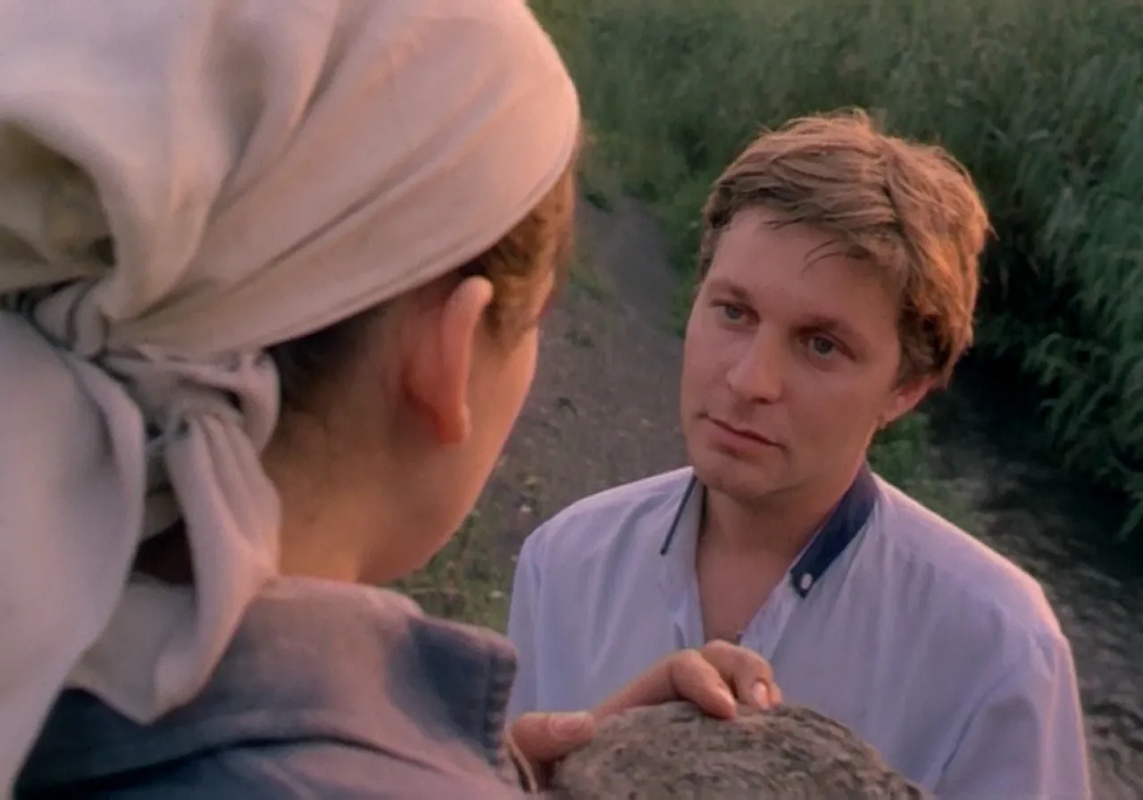
Sergey Pshenichnyy (Sergey Koltakov) speaking to one of the 1940s farmers. DP: Evgeniy Grebnev.
SovietUnion
Распад [Raspad / Collapse / Decay] (Mikhail Belikov, 1990)
Apr
25
1986

A young boy looks over his shoulder into the camera. He's seated at an extended table, set with food for many. A man in the back is on the phone; a woman walks around cradling a newborn child. In the corner of the room a baby cot. DP: Vasiliy Trushkovskiy.
“He began thinking about the innocence of machines, about how man had endowed them with intelligence and, in doing so, had made them an accomplice of his mad adventures. About how the myth of the golem — the machine that rebelled against its creator — was a lie, a fiction invented by the guilty for the sake of self-exoneration.”Test pilota Pirxa [Pilot Pirx's Inquest] (Marek Piestrak, 1979)
Apr
12
International Day of Human Space Flight
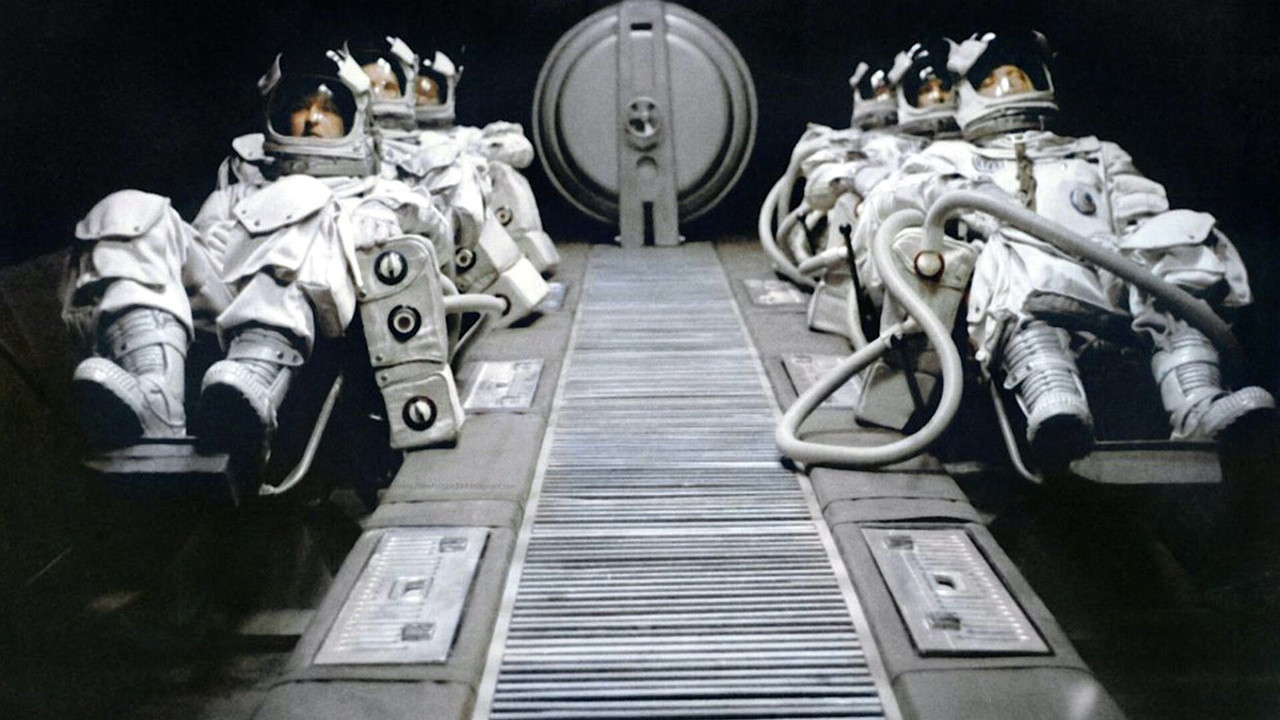
Men and nonlinears to board the ship set for Saturn's Cassini Division. DP: Janusz Pawłowski.
A manned spaceship for the International Day of Human Space Flight
– Stanisław Lem, Opowieści o pilocie Pirxie (1968)
Commander Pirx is sent out on a secret mission to evaluate “nonlinears” – androids – to determine if they can be used for future space flights. In a blind test, androids and humans form a crew for Pirx to investigate and identify.
უჟმური [Ujmuri / Мрачная равнина / Cheerless] (Nutsa Gogoberidze, 1934)
Mar
3
Florida – 1845
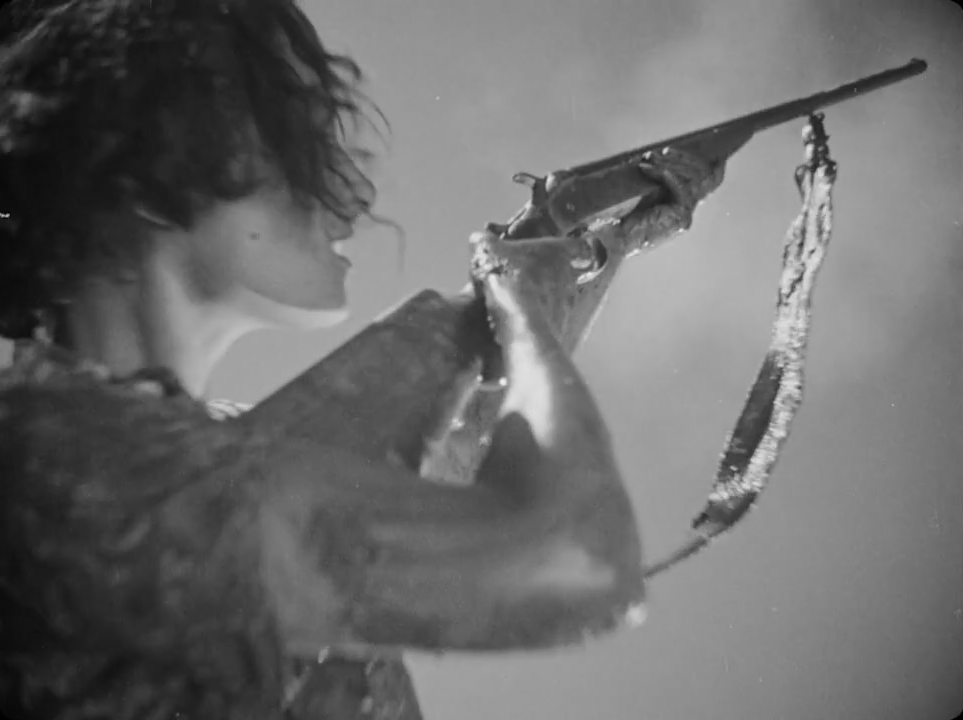
A young woman, dress and arms covered in swamp water, raises a muddy shotgun. DP: Shalva Apaqidze.
A swamp (or The Everglades) on that day in 1845 Florida became the 27th state.
The swamp dwellers' trust in shaman Uzhmuri, the Queen of Frogs, prohibits the authorities from draining the wetlands in their fight against malaria.
Тіні забутих предків [Shadows of Forgotten Ancestors] (Sergei Parajanov, 1965)
Feb
6
St. Dorothea of Caesarea
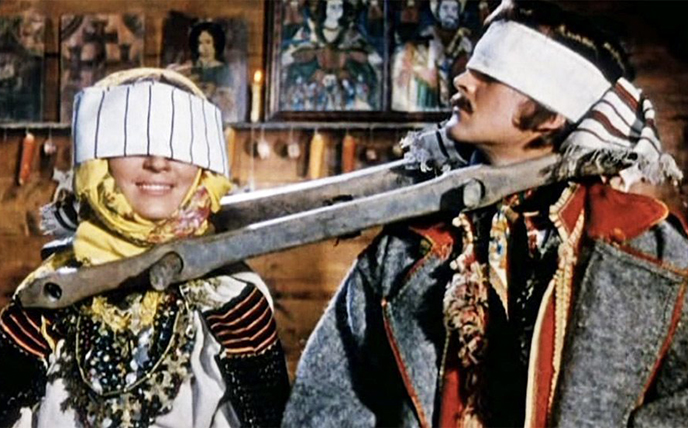
The childhood lovers to be newlyweds. During the wedding ceremony, the bride suddenly breaks out in smile. DPs: Yuri Ilyenko & Viktor Bestayev.
A wedding on the day of Dorothea of Caesarea, patron saint of horticulture, brewers, brides, florists, gardeners, midwives, newlyweds, and love.
Libahunt [Лесная легенда / Werewolf] (Leida Laius, 1968)
Jan
13
soup

A dinner table shown from above. Several people, we mainly see their hands and wooden spoons, eat from a hand-carved bowl. DP: Algimantas Mockus.
“Better to be with wolves in the forest, than with people like you!”Libahunt [Лесная легенда / Werewolf] (Leida Laius, 1968)
Jan
13
wolf moon
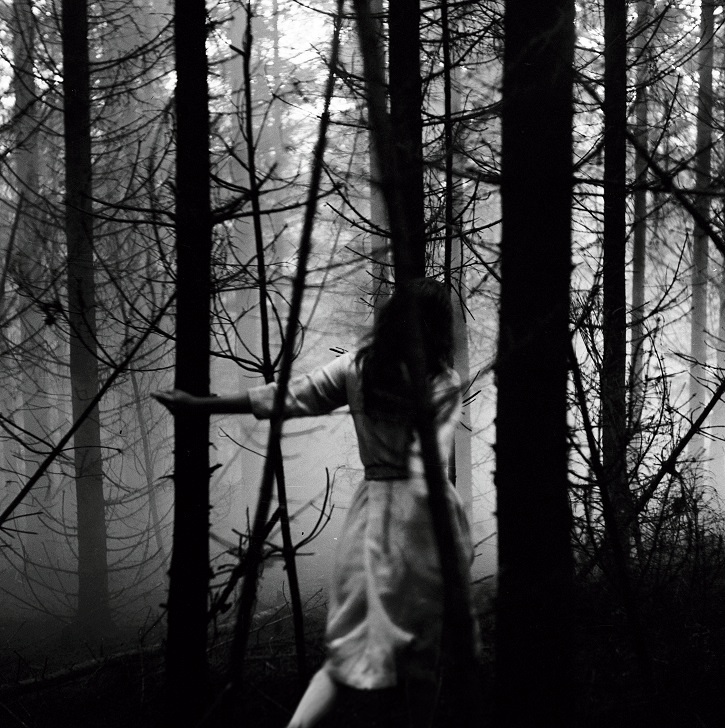
Tiina (Ene Rämmeld) walking through the forest. DP: Algimantas Mockus.
Wolves for Wolf Moon, the first full moon after Yule.
In Livonia, which covers modern day Estonia, the 17th century was when the werewolf trials reigned.
Tiina, a young liberated woman taken in by a family of farmers after her mother was put on trial for witchcraft, is accused of hunting with the wolves as a werewolf by her half-sister with whom she shares a lover.
“We sought asylum for our love, but the road led us out to the land of the dead.”նռան գույնը [Sayat Nova / The Color of Pomegranates] (Sergei Parajanov, 1969)
Jan
11
journeys
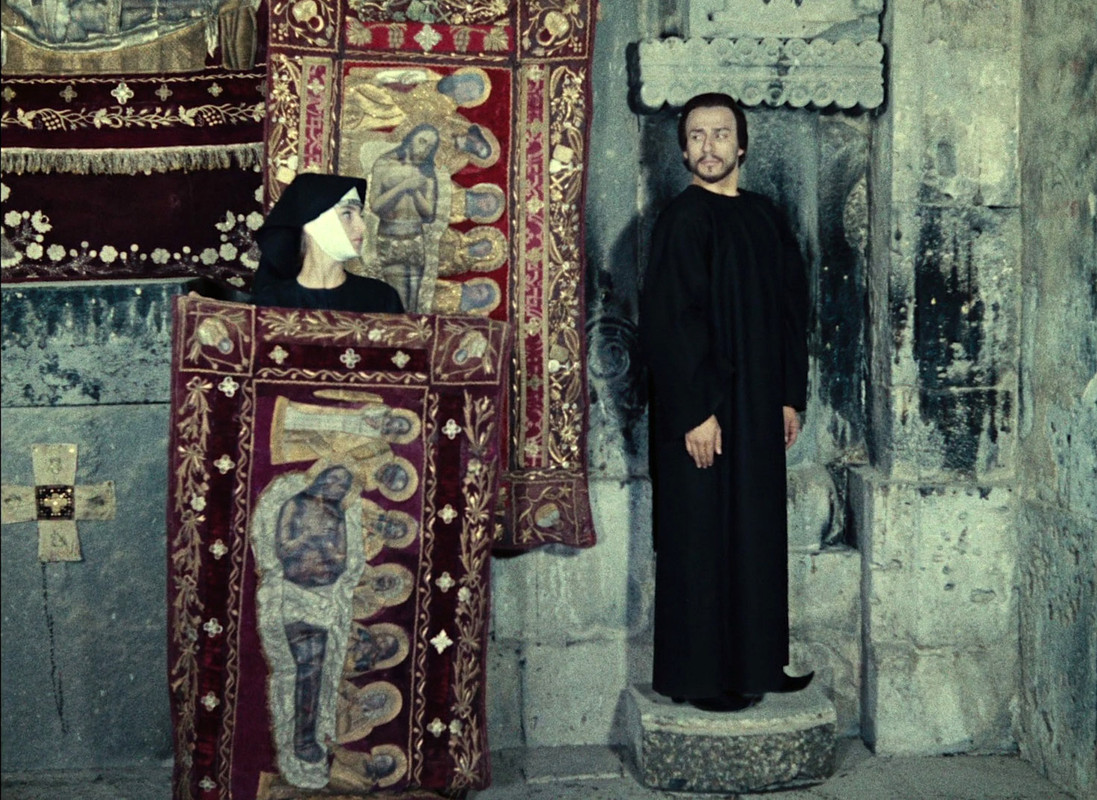
A nun holds up an embroidered cloth depicting a dead Christ surrounded by mourning saints. Next to her a monk in black, resembling poet Sayat-Nova. Screenshot via Screenmusings. DP: Suren Shakhbazyan.
Garnets for January. The garnet is supposed to protect the traveller on his journey, and is named after the pomegranate with which it shares its bloodred colour.
The story of a poet's spiritual journey. The poet, and poems the film is based on is ashough [lover, or travelling musician] Sayat-Nova (b. Harutyun Sayatyan).
“You were so scared that you knocked out two tanks? Out of fright? Everybody hear? I wish everybody were so scared.”Баллада о солдате [Ballada o soldate / Ballad of a Soldier] (Grigoriy Chukhray, 1959)
Dec
19
Heroes' Day

Hero Alyosha Skvortsov (Vladimir Ivashov). DPs: Vladimir Nikolayev & Era Savelyeva.
A heroic act for (National) Heroes' Day.
– The General
Восточный коридор [Vostochny Koridor / Eastern Corridor] (Valentin Vinogradov, 1967)
Jan
15
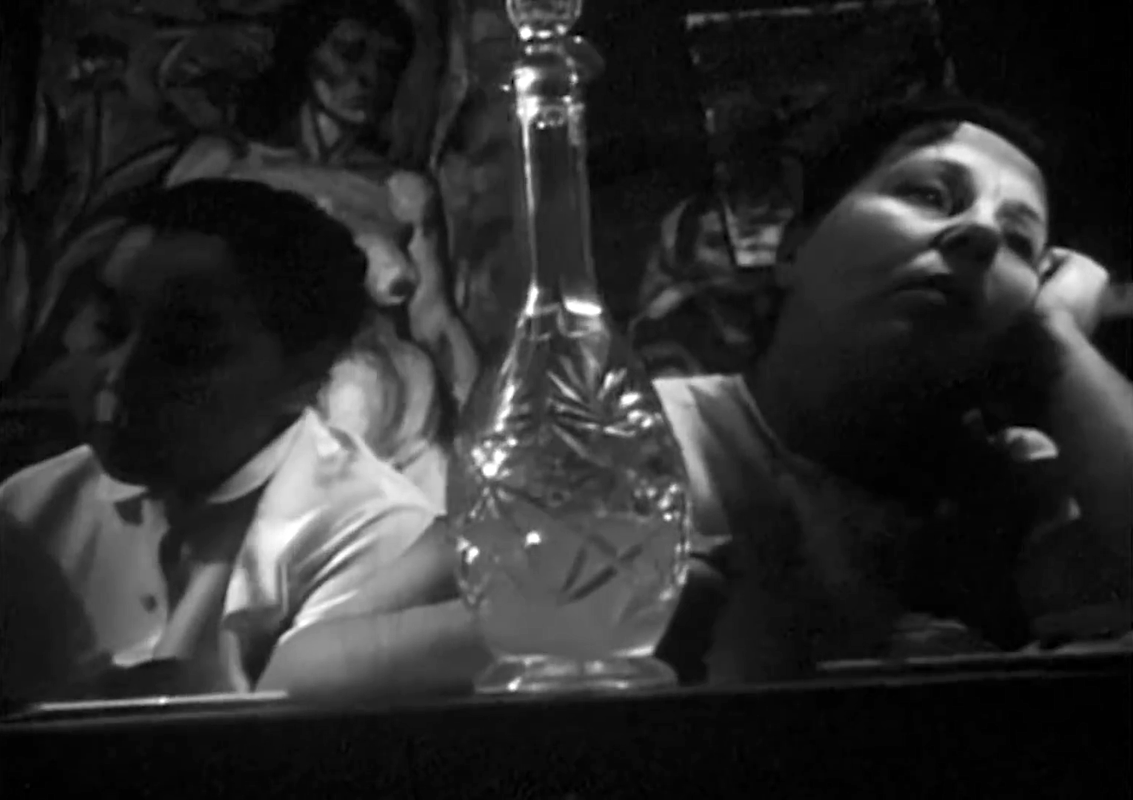
People eating, drinking, singing. DP: Yuri Marukhin.